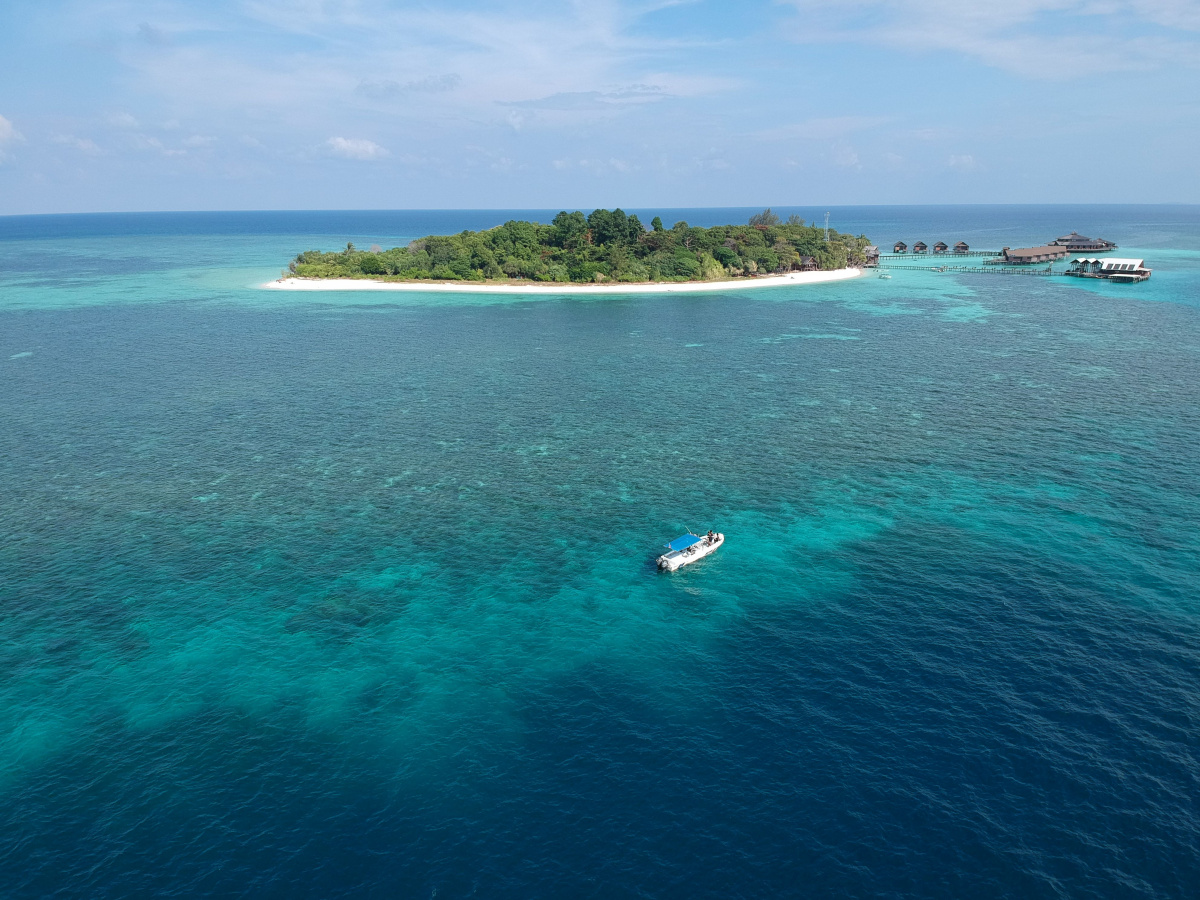IUCN Green List catalysing fair and effective Protected Areas in Asia and globally with the support of the Ministry of Environment of the Republic of Korea
An IUCN Green List project, funded by the Ministry of Environment of the Republic of Korea, about ‘Promoting Fair and Effective Conservation of Protected and Conserved Areas globally based on experience in Asia’ has achieved successful completion with many new countries and protected areas committing to the IUCN Green List in Asia, and support to key global IUCN Green List strategies and outputs within its project duration from 2019 until the end of 2021.

Sugud Marine Islands Conservation Area, Green List Candidate Site in Malaysia
Photo: Fungchen Chung
The multi-year global to regional project has directly enabled the strategic growth of the IUCN Green List of Protected and Conserved Areas from national to site levels in Asia, and the development of key global IUCN Green List strategies. The project has also developed capacity for IUCN Green List implementation with IUCN Secretariat Staff, IUCN Members, and IUCN Commission Members in Asia, actively mobilising the Union for protected areas impact as measured by the IUCN Green List Standard. The project has successfully advanced the conditions for more effectively managed and equitably governed protected areas (PA) and PA systems in a total of eight countries in Asia, and generated interest in the IUCN Green List in several more countries.
Most countries are members of the Asia Protected Areas Partnership (APAP). APAP has been designed as a key platform to help governments and other stakeholders collaborate for more effective management of protected areas in the region. It is Chaired by IUCN’s Asia Regional Office (ARO) and co-chaired by an APAP member organisation on a rotational basis (currently Co-Chaired by the Ministry of Environment, Forest and Climate Change of the Government of India, with previous Co-Chairs being Ministries of Environment of the Republic of Korea and of Japan). The eight countries implementing the IUCN Green List are: Bhutan, China, Lao PDR, Malaysia, Pakistan, Sri Lanka, Thailand, and Vietnam. The Republic of Korea has also been supported on IUCN Green List implementation through this project.
A total of 43 new PA sites across these eight countries committed to the IUCN Green List Standard as a result of this project. The committed sites represent a diversity of protected areas and conservation values across IUCN PA Management Categories and Governance Types, and include UNESCO World Heritage Sites, Ramsar Wetlands of International Importance, National Parks, Key Biodiversity Areas, and sites successfully conserving globally threatened species on the IUCN Red List.
Dr Scott Perkin, Head of the Science and Strategy Group in the IUCN Asia Regional Office, said: “This project has enabled us to significantly expand the understanding and uptake of the IUCN Green List in Asia. As a result of the project, we have seen a groundswell of interest in using the IUCN Green List across the region, and we now anticipate a rapid increase in the number of sites enrolled in the programme. The project also played an important role in supporting Van Long Nature Reserve to become the very first protected area in South-east Asia to be inscribed on the IUCN Green List – a critical achievement which has been a cause for celebration and a source of inspiration, not only for other protected areas in Vietnam, but also, other countries across the region.”
This project has supported a number of important outputs and outcomes for the IUCN Green List both in the region and globally, these include:
- A new IUCN Green List Mentor national training programme for Malaysia was designed and delivered successfully with WWF Malaysia.
- National, regional and global exchanges on IUCN Green List knowledge, experience and technical capacity have increased in the Asia region – there is now more interest in the IUCN Green List in the region than ever before.
- An IUCN Green List Working Group has been established under the Asia Protected Areas Partnership initiative. It was the first working group to be established under APAP, and marked an important stage in the evolution and development of Partnerships for promoting and implementing good practices related to PA effectiveness and equitable governance, thanks in part to the support of this project.
- An IUCN Green List Asia Strategy initiated by this project will continue the momentum and strategic growth of the IUCN Green List in Asia in 2022 and beyond.
- A new dedicated IUCN Green List website (www.iucngreenlist.org) available in IUCN’s three official languages was developed and launched with support of this project, and serves as the main public communication and information platform globally.
- A global IUCN Green List Knowledge Management Strategy with recommendations for improving internal and external knowledge management processes was co-financed by this project and guides knowledge and data management improvements.
- A new global IUCN Green List Development Plan has been co-financed by this project. The Plan sets out the key elements, options and opportunities for the refinement and global expansion of the IUCN Green List for the period 2021 to 2030, in alignment with the UN Biodiversity Convention’s post-2020 Global Biodiversity Framework and the UN’s 2030 Agenda for Sustainable Development.
- This project contributed support to IUCN’s global input into the 2020 Protected Planet Report: the 2020 edition (with updates until May 2021) provides the final report on the status of Aichi Biodiversity Target 11, and looks to the future for preparation for the new post-2020 Global Biodiversity Framework.
The final technical report for the project duration - which includes links to documents, strategies and news aritlces – is available for download here.
For enquiries about this project or about the IUCN Green List please contact greenlist[at]iucn.org.



